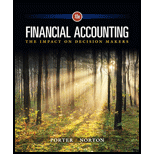
Introduction: An organization can be of various type like profit earning and non-profit earning for economic benefits and non-economic benefits. A profit earning business organization usually commences with owner’s capital, investing in shares, stock, issuing bonds for payments, making transactions for business deals, inflows and outflows of cash with the aim of earning profit. On the other hand, a non-profit earning organization has no aim of earning profit with service motive.
To fill: The given blanks in the question.
Given info: The various statements are provided to fill with the given items in the question.
Answer to Problem 1.1KTQ
1. Asset
2.
3. Revenue
4. Corporation
5. Non-Business Entity
6. Expense
7. Liability
8. Share of Stock
9. Bond
10. Stockholder
11. Creditor
12. Economic Entity Concept
13. Sole proprietorship
14. Capital Stock
15. Business
16. Business Entity
Explanation of Solution
1. A future economic benefit: Asset.
2. A business owned by two or more individuals, the organization form often use by accounting firms and law firms: Partnership.
3. An inflow of assets resulting from the sale of goods and services: Revenue.
4. A form of entity organized under the laws of a particular state; ownership evidenced by shares of stock: Corporation.
5. An organization operated for some purpose other than to earn a profit: Non-Business Entity.
6. An outflow of asset resulting from the sale of goods and services: Expense.
7. An obligation of a business: Liability.
8. A certificate that acts as evidence of ownership in a corporation: Share of stock.
9. A certificate that represents a corporation’s promise to repay a certain amount of money and interest in the future: Bond.
10. One of the owners of a corporation: Stockholder.
11. Someone to whom a company or person has a debt: Creditor.
12. The assumption that a single, identifiable unit must be accounted for in all situations: Economic entity concept.
13.A form of organization with a single owner: Sole proprietorship.
14.Indicates the owner’s contributions to a corporation: Capital stock
15.All of the activities necessary to provide the members of an economic system with goods and services: Business.
16. An organization operated to earn a profit: Business entity.
Want to see more full solutions like this?
Chapter 1 Solutions
Financial Accounting: The Impact on Decision Makers
- Which of the following is not considered a stakeholder of an organization? A. creditors B. lenders C. employees D. community residents E. a business in another industryarrow_forwardWhich of the following is the principle that a business must report any business activities that could affect what is reported on the financial statements? A. revenue recognition principle B. expense recognition (matching) principle C. cost principle D. full disclosure principlearrow_forwardWhen corporations issue stock in exchange for professional services, what account(s) should be debited and what account(s) should be credited?arrow_forward
- Revenue in Business Question How does interest expense contribute to revenues of a business? Explain Please.arrow_forwardA concept of accounting that indicates that the financial records of the business should be kept separate from the personal financial records of the business owner is the ________________________. Group of answer choices business entity concept cost concept proprietorship concept asset conceptarrow_forwardSetting accounting standards by the private sector is Select one: a. Common law accounting O b. Independent discipline approach O c. Microeconomic approach O d. Code law accountingarrow_forward
- The courts have determined that to qualify as a trade or business, an activity must: A.Be operated with a profit motive B.Have capital expenses C.Show a profit D.Have ordinary and necessary expensesarrow_forwardFinancial accounting shows the result of the collective activities of the business. Select one: O True Falsearrow_forwardWhich type of business organization provides the least amount of protection forbankers and other creditors of a company?a. Partnershipb. Corporationc. Proprietorshipd. Both a and carrow_forward
 Intermediate Accounting: Reporting And AnalysisAccountingISBN:9781337788281Author:James M. Wahlen, Jefferson P. Jones, Donald PagachPublisher:Cengage Learning
Intermediate Accounting: Reporting And AnalysisAccountingISBN:9781337788281Author:James M. Wahlen, Jefferson P. Jones, Donald PagachPublisher:Cengage Learning- Principles of Accounting Volume 1AccountingISBN:9781947172685Author:OpenStaxPublisher:OpenStax College





